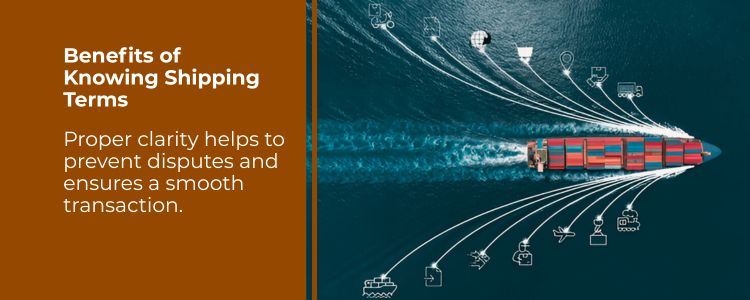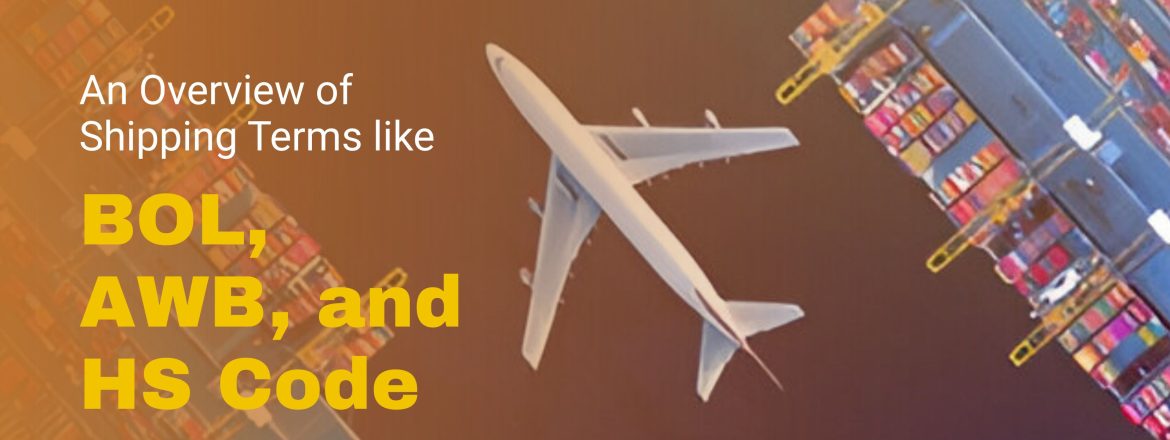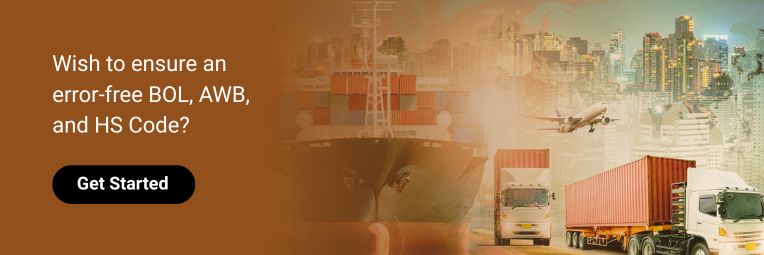BOL, AWB, and HS Code : An Overview of Shipping Terms
Businesses that require the transportation of products in the supply chain must know the difference between air waybills (AWBs), bills of lading (BOLs), and HS codes in the domain of import-export shipping terms. Smooth operations in international trade depend on accurate documentation and communication, whether you’re transporting readymade goods or raw materials. The documents – the HS code, the Bill of Lading (BOL), and the Air Waybill (AWB) frequently lead to misunderstandings.
Although they all have similar functions, they differ in important ways that might affect how shipping arrangements are managed, monitored, and delivered. These documents are crucial in the field of logistics because they each have distinct functions. We at Inductus Global handle the complications of international logistics, and we take care even of minor errors in documentation, which can result in expensive delays.
Inductus Global is a global trade & commerce organization: a trusted partner in sustainable sourcing and procurement services. With over two decades of experience, Inductus has developed deep expertise in product sourcing across various sectors, establishing ourselves as a leader in the global marketplace.
The fundamentals of AWBs, BOLs, and HS codes will be covered in this guide, including their definitions, contents, distinctions, and electronic formats. You will therefore be able to identify which one you are working with the next time you ship cargo.

Bill of Lading (BOL)
The bill of lading plays a crucial role in shipping and is one of the most important documents, particularly for ocean freight. It functions as a formal contract between the shipper and the carrier as a receipt of goods, document of title specifying the type, quantity, and destination of the goods being transported, and outlines what is being shipped, who is shipping it, who is receiving it, and how it’s being transported.
No matter what mode of transportation, by sea, road, or rail, the BOL leads the shipment every step of the way. And the key point for the document to be valid is that it must bear the signatures of the carrier, shipper, and receiver, ensuring all parties are aligned, and the transaction should be properly documented.
If there is any issue with the BOL, the shipment cannot be released at the destination port, and any errors in the BOL can lead to fines, customs delays, or disputes between parties. At Inductus, we carefully manage BOLs to make sure that all shipments are safe and traceable from origin to delivery.
AWB (Air Waybill)
An AWB is an air transport document equivalent to a BOL issued by the carrier that accompanies air and ground shipments. It is a non-negotiable document issued by an airline or air freight forwarder that covers the shipping arrangement of goods by air. An AWB is non-negotiable and does not represent ownership of the goods. It contains details about the shipment and provides tracking information. It also acts as a consignment note and shipment receipt, a contract of carriage, and a customs declaration document.
Air freight is fast but costly, and there is little room for documentation errors. An AWB is essential for customs clearance, shipment tracking, and resolving any discrepancies in transit. At Inductus, our logistics team ensures every AWB is meticulously prepared and aligned with shipping and customs requirements to avoid hold-ups during air freight movement.
Key Information in an AWB:
- Includes Shipper and consignee details
- Handling instructions and charges
- Flight number and airport codes, flight details, and terms of carriage.
- Description and weight of cargo
- Functions as a receipt of goods and a contract but not as a document of title.
Harmonized System Code (HS Code)
Harmonized System (HS) codes help customs authorities to identify the type of goods being shipped through the import-export shipping terms for the classification of goods. It is an internationally standardized system developed by the World Customs Organization (WCO) for classifying traded products and is updated every five years. The Harmonized System is a standardized numerical method of classifying traded products, used by countries around the world to identify and describe products and gather statistics.
It serves as the foundation for the import and export classification systems used in the United States and by many trading partners. The basic format is a six-digit code, which may be extended to 8 or 10 digits for varying classifications and commodities. Countries are allowed to add longer codes to the first six digits for further classification to provide greater detail, like the United States, which requires a 10-digit number to classify products being imported or exported.
HS classification is crucial for determining taxes, import duties, and applicable trade regulations compliance with import/export regulations and enables proper tariff calculation. Lumping can result in misclassification, shipment delays, overpayment, or even legal penalties.
Our experts at Inductus Global use automated tools to ensure accurate HS coding for every shipment.
Conclusion
Shipping is about moving the shipment efficiently, correctly, and compliantly. BOLs, AWBs, and HS Codes are the key for smooth and successful national and international trade operations. Whether you’re a first-time importer or a seasoned global buyer, partnering with a good procurement company can save time, reduce costs, and eliminate unnecessary risks.
Do you need assistance finding the perfect product or managing international shipping? Simplify your worldwide supply chain by contacting Inductus Global and allowing our professionals to assist you. Inductus Global has become a trusted partner in sustainable sourcing and procurement services.
With over two decades of experience, we have developed deep expertise in product sourcing across various sectors, establishing ourselves as a leader in the global marketplace. We are here to help you with our knowledge, effectiveness, and accuracy. These three concepts serve as the cornerstone of our everyday logistics operations, and we specialize in streamlining intricate supply chains. Maintaining correctness in AWBs, HS Codes, and BOLs enables us to reduce delays, manage expenses, and provide value to our global clientele.










